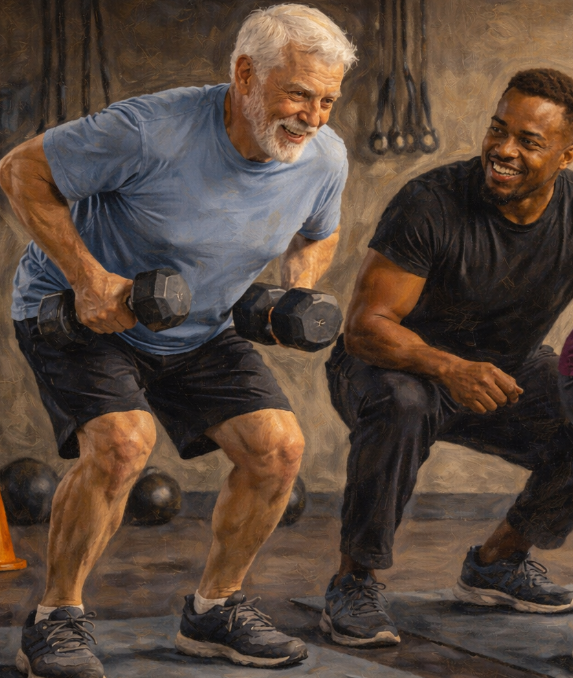When to Start Your Young Toddler in Development Classes
- Hayden Wilcox
- Oct 1, 2025
- 4 min read
Every parent wants to give their child the best possible start. Between baby music sessions, toddler tumbling, balance play, and preschool movement programs, it’s easy to wonder - when should we begin?
The truth is, early physical and social experiences can make a big difference in a child’s balance, coordination, and overall confidence. Let’s break it down by age to help you decide what’s best for your little one.
Ages 12 to 18 Months: Discovering Movement
At this stage, most toddlers are taking their first steps and learning to explore the world on foot. Everything is new - textures, sounds, and environments are all exciting.
Best Class Types:
Parent-and-me movement classes
Music and rhythm sessions
Gentle play-based activities (soft blocks, tunnels, rolling balls)
Focus Areas:
Walking stability and balance
Fine motor coordination (grasping, throwing, stacking)
Social comfort - being around other children
These classes should be short (20-30 minutes) and playful. The goal is exposure - helping toddlers feel confident moving, falling, and getting back up again.
Ages 19 to 24 Months: Building Confidence
By this age, toddlers are walking, climbing, and exploring more independently. They start mimicking adults, following simple directions, and enjoying group songs or routines.
Best Class Types:
Mini tumbling or toddler gym classes
Music and motion programs
Introductory obstacle courses
Focus Areas:
Climbing and stepping safely
Body awareness (learning “jump,” “spin,” or “crawl”)
Early listening and following 1-step directions
Parent involvement is still important, but toddlers begin participating with short bursts of focus and curiosity. Expect lots of repetition - that’s how they learn best.
Ages 2 to 3 Years: Coordination and Curiosity
This is when many parents see a real developmental leap. Two-year-olds love movement challenges and can handle simple group formats. They’re more aware of rhythm, timing, and taking turns.
Best Class Types:
Structured toddler gym or ninja play classes
Creative movement and dance
Intro sports play (throwing, kicking, balance beams)
Focus Areas:
Jumping with both feet
Balance and coordination
Early social skills like waiting turns and sharing
Classes at this stage can begin including theme-based play - pretending to hop like frogs, climb mountains, or balance across “lava.” It’s movement mixed with imagination, which keeps kids engaged and learning.
Ages 3 to 4 Years: Structured Exploration
By age 3, many children can follow 2-step instructions and are ready for slightly more structured environments. They can remember routines, enjoy challenges, and love showing off their new skills.
Best Class Types:
Preschool sports or ninja development classes
Dance, gymnastics, or beginner martial arts
Mini team games that encourage teamwork
Focus Areas:
Core strength and agility
Directional skills (forward, backward, sideways)
Confidence in trying new skills
At this age, short warm-ups, obstacle circuits, and balance activities work well. Instructors should use clear routines and lots of encouragement. Classes of 30-45 minutes are ideal.
Ages 4 to 5 Years: Strength, Agility, and Focus
Preschoolers now have better attention spans and coordination. They can understand more rules, follow longer routines, and start setting personal goals - “I can jump higher!” or “I can climb this wall!”
Best Class Types:
Youth development or ninja warrior-style classes
Beginner gymnastics or sports foundations
Obstacle courses with scaled difficulty
Focus Areas:
Strength, stability, and coordination
Problem-solving (figuring out how to complete an obstacle)
Positive competition and teamwork
This is a great time to introduce goal-oriented play - like timing their runs or completing challenges. These early experiences can set the tone for healthy confidence and athletic enjoyment that lasts into childhood.
Why Starting Early Matters
Introducing structured movement and development classes early:
Builds core strength and coordination
Improves confidence and spatial awareness
Enhances social skills in group settings
Supports language and listening development
Creates healthy movement habits early on
More than anything, early movement builds a foundation for lifelong confidence. When kids feel capable in their bodies, they’re more likely to explore, try new things, and stay active as they grow.
When to Wait
If your child feels shy or overwhelmed, that’s perfectly normal. You can start with open play sessions or free exploration before enrolling in structured programs. Every child develops at their own pace - the key is gentle exposure, not pressure.
At AqilFitness Training Solutions, we help children from toddlers to school age grow strong, confident, and balanced. Our youth development programs combine fun obstacles, teamwork, and movement games to keep your child active, focused, and smiling.
📅 Book your child’s free developmental trial session today and help them take their first steps toward a lifetime of movement and confidence.
Areas Serviced
Our developmental training and kids’ fitness programs proudly serve families throughout the Dallas–Fort Worth Metroplex, including:Dallas, Fort Worth, Irving, Grand Prairie, Arlington, North Richland Hills, Keller, Southlake, Grapevine, Colleyville, Bedford, Hurst, Coppell, Lewisville, Flower Mound, Carrollton, Euless, Mansfield, Cedar Hill, and Plano.
If you’re searching for “kids movement classes near me”, “toddler balance training DFW”, or “youth development programs Grand Prairie”, AqilFitness Training Solutions is here to help your child build confidence through play and movement.






Comments